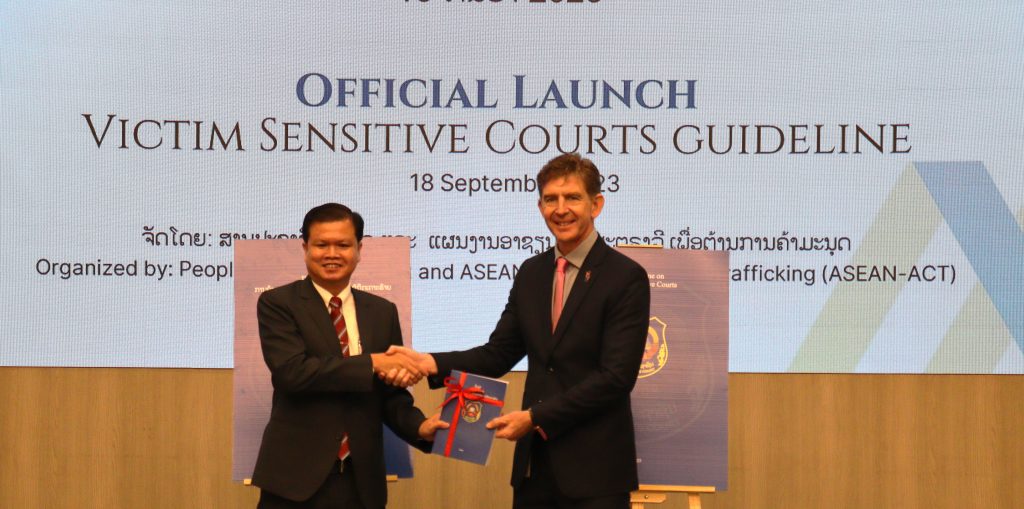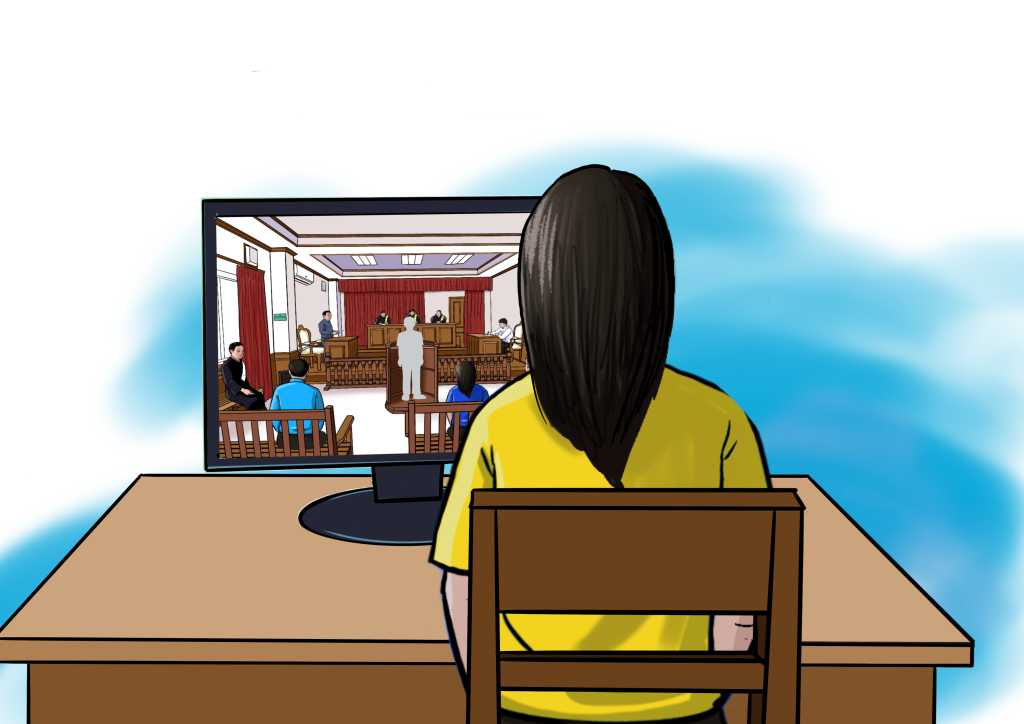Lao PDR has long been a migrant-sending country, providing workers for neighboring Thailand and further afield. Migrant workers from Laos are vulnerable to trafficking in persons as they often travel without documentation and lack access to protection and support. More recently, Laos has also become a destination country for foreign workers, with some experiencing exploitation and abuse in the country’s Special Economic Zones.
To better protect and support trafficked victims throughout the court process, Lao PDR has launched a new guideline which applies to all courts across the country. Laos is the first ASEAN Member State to develop an official guideline on the rights and protections afforded to victims of trafficking in persons who participate in criminal proceedings.

In trafficking cases, victims are often the only source of evidence, and without their cooperation it is difficult to prosecute offenders. To support victims to play a role in bringing their perpetrators to justice, it is critical that courts are inclusive, accessible, and sensitive to the needs of all victims.
Putting victim-sensitive principles into practice does not require a complete overhaul of the criminal justice system. It is often through small, but meaningful changes such as altering the layout of a court room to make it less intimidating and more accessible, that victims feel more comfortable and confident participating in trials.
By adopting victim-centred court practices ─ such as providing testimony via video – the likelihood of a victim choosing to participate in a trial is increased. Victims and witnesses are also more likely to give their best evidence when they have access to legal aid and other support.

The Lao PDR Victim Sensitive Court Guidelines was drafted by a technical working group of judges from the People’s Supreme Court with support from the ASEAN-Australia Counter Trafficking program (ASEAN-ACT). The technical working group was formed following a workshop in 2021 where ASEAN-ACT introduced a set of victim sensitive court indicators – developed by the program to progress and measure the extent to which justice services protect and support victims.
During the official launch on 18 September 2023 in Vientiane, Lao PDR, Vice President of the People’s Supreme Court Lao PDR, HE Bounkhoung Thavisack, emphasised the strong collaboration from all agencies, investigators, prosecutors and the courts to ensure equality and justice to protect the rights of victims of trafficking – especially victims whose dignity has been compromised and require special attention during and after court proceedings.
Australian Deputy Head of Mission for Lao PDR, Dan Heldon, commended the Government of Lao PDR at the launch of the guideline, highlighting Laos’ leadership in advancing human rights-based approaches to counter trafficking, in line with the ASEAN Convention against Trafficking in Persons, especially women and children.

Honorable judges from the Judges Council, the Supreme Court, the Appeal Court, the Judicial Research Training Institute and relevant government agencies attended the official launch.
The guidelines are a strong example of how victim-sensitive court principles can be contextualised to fit within national laws and policies on countering trafficking, while being in line with regional and international obligations.

While the Guideline has been developed specifically for victims of trafficking, the 8 indicators can be applied to any crime involving a vulnerable victim or witness. The indicators are designed to measure the extent to which courts are upholding the rights of victims and supporting access to justice for groups such as women, children, and persons with disability.
Over the coming months the People’s Supreme Court, with support from ASEAN-ACT, will conduct training for provincial judges across the country on the new guideline. Ultimately, the Victim Sensitive Court Guidelines will be embedded into the Judicial Research Training Institute’s curriculum for all judges in Lao PDR.
With more victims likely to cooperate with authorities and better-quality testimonies, the prospect of securing a justice outcome for a victim of trafficking significantly increases.
To learn more about victim-sensitive court indicators, watch this animation:
This animation is also available in Bahasa Indonesia, English, Khmer, Lao, Thai, and Vietnamese.